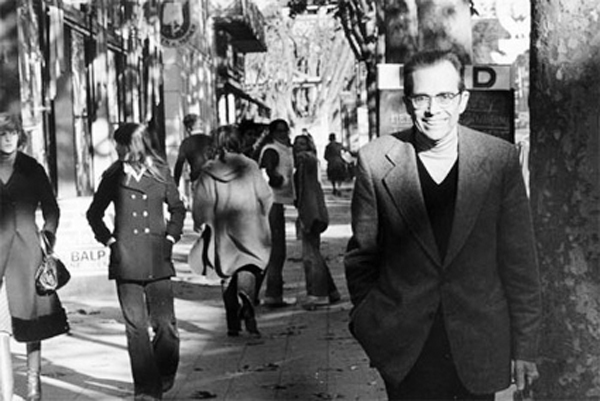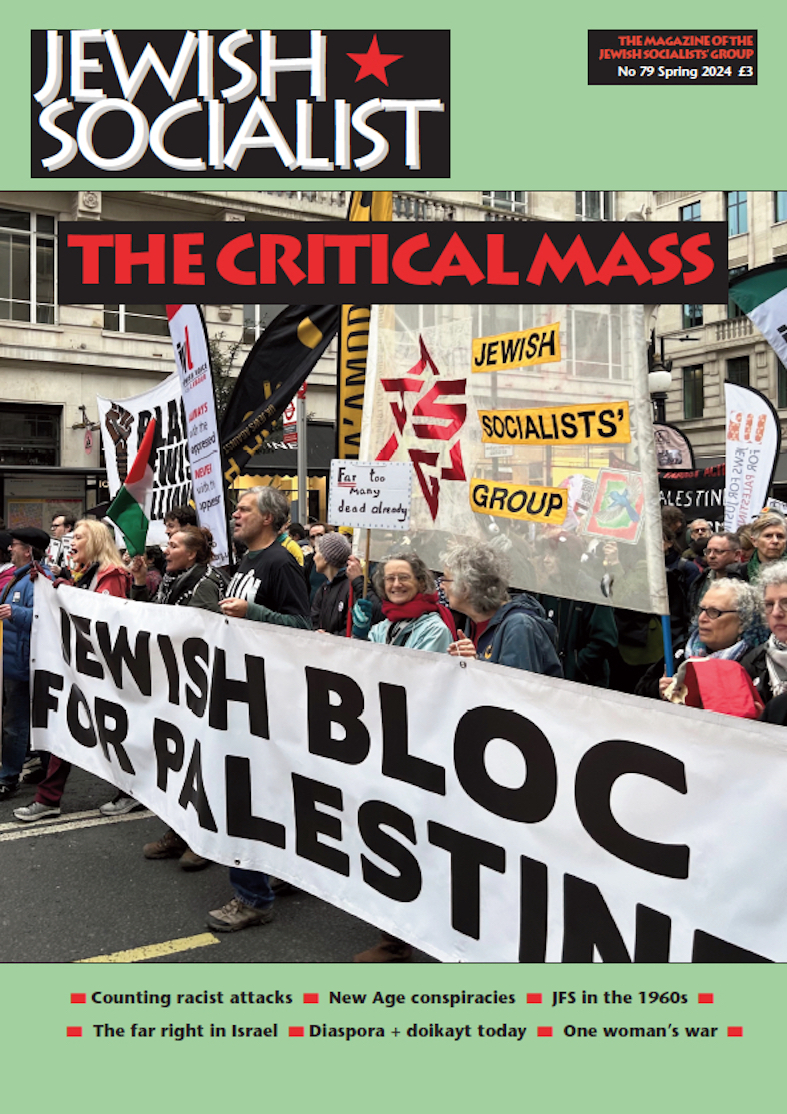Murder in the Rue Rollin
Egyptian Jew Henri Curiel was a founder of the Communist Party in his country and neighbouring Sudan, and a pioneer of genuine Israeli-Palestinian peace contacts when this was an illegal, risky, and many thought impossible mission. Respected also for his solidarity work for struggles in several countries, Curiel was under surveillance by more than one security service when he was murdered in Paris in 1978.
 HENRI CURIEL
HENRI CURIEL
RUE Rollin is a quiet, narrow street in Paris' 5th arondissement. Only open to vehicles from one end, at the Place de la Contrescarpe, it ends in a flight of thirty steps down to the Rue Monge. Henri Curiel used to assure friends that its unsuitability for traffic made it a fairly safe place for him. He meant from assassins.
At a time when sensational allegations appearing in various publications, probably planted by intelligence services, linked Curiel with everything from the KGB to the terrorist Carlos, and even the kidnap and murder of a German businessman, the Egyptian-born communist probably knew he might be the target for assassination, and felt his family and friends needed reassuring.
But though Rue Rollin might have been a difficult place for anyone watching Curiel to mount an old-fashioned stake-out, it was not proof against modern surveillance techniques. The French security services were keeping Henry Curiel under observation, and so it seems were the assassins.
Behind the fantastic smears and accusations, Curiel's real activities were enough to have earned him the hatred of dangerous forces. He had supported the Algerian liberation struggle and set up the Solidarite network which assisted underground ANC militants in South Africa.
He was suspected of helping to expose secret West German nuclear co-operation with the Apartheid rulers. Solidarite was also approached by Basque militants.
Imprisoned during World War II, when his Ronde Point bookshop was a rendez-vous for left-wing soldiers in the Allied forces, and he supported the Greek army mutiny, Curiel had helped found both the Egyptian and Sudanese Communist Parties. In common with others following the Soviet line, Curiel supported partition in Palestine, and was jailed again by King Farouk, then exiled. In France he was met with suspicion and hostility from the Communist Party leadership because of his friendship with ousted veteran Andre Marty, as well as his support of the new Egyptian regime against imperialism.
Meanwhile, Curiel had not lost sight of the other side to the Palestine question - what happened to the Palestinians. Becoming a tireless worker for Middle East peace, he was one of the first to see that this required recognition of the Palestinian people's rights, and not least their right to speak for themselves. In 1977, Egypt's President Sadat had gone to Jerusalem, and whatever his assurances, the Palestinians feared they would be forgotten in his dealings with Israel. While the statesmen talked of peace, Lebanon had suffered war. Israel's new right-wing government and the US administration were intent on destroying the Palestine Liberation Organisation(PLO).
On the morning of May 4, 1978, Henri Curiel had a meeting, at a cafe on the corner of the Boulevard St.Michel and Boulevard Saint-Germain with Issam Sartawi, a cardiologist by profession, PLO fighter turned diplomat by mission. The murder of the PLO's London envoy Said Hammami in January that year had not deterred Sartawi from his aim of winning support among Europe's social democrats (Swedish prime minister Olaf Palme had introduced him to Austrian chancellor Kreisky) and building on dialogue with dissident Israelis. Curiel was the man to set up talks with Uri Avnery, ex-major general Matti Peled, and others.
Curiel returned home to his flat from the meeting with Sartawi confident that he could achieve something. He had a light lunch, a ham sandwich and a coffee, as he was going to his yoga class that afternoon. At 2pm his wife Rosette saw him off on the landing as he stepped into the lift. As he reached the ground floor, he took out his car keys and his diary. Two men were waiting in the foyer. One of them fired four shots from a Colt 45 into the lift, killing Henri Curiel.
The killers had evidently been able to monitor Curiel's movements, and they were also able to get away, perhaps running down the steps to Rue Monge and a waiting vehicle. No one was ever caught for this murder, and some doubt the French police really tried. An early claim for the killing was made in the name of a "Commando Delta" - suggesting the French far-Right OAS was avenging Curiel's support for the Algerians. But it seemed a bit late, and unconvincing, although an Algerian workers' activist was also killed that year in Paris, possibly by the same gun.. Whoever Henri Curiel's killers were they seemed too professional.
In South Africa, imprisoned poet Breyten Breytenbach heard his jailors boast "We got your friend Henri Curiel!" There were stories about Argentinian hitmen who might have been hired by the Spanish security services. Some have suggested that the Abu Nidal group which had killed Said Hammami and would later kill Issam Sartawi might also have targeted Curiel, although others, including my late friend Maxim Ghilan, were convinced that Israel's Mossad was responsible, either directly, or as Maxim said, "The South Africans pulled the trigger, but Israel pointed them in that direction".
Standing back and looking at the overall picture, as well as at some of the names of journalists who had smeared Henri Curiel, I can't help wondering whether the CIA (cliche though this may be) was behind it. With the collaboration of elements at least in the French intelligence services. If we knew the answer to this murder mystery it might throw new light on some of the Middle East's murky history, and help us better understand present realities.

Two articles on Curiel from the twentieth anniversary of his assassination:
http://mondediplo.com/1998/04/13curiel
http://mondediplo.com/1998/04/14curiel2
Gilles Perrault's book Un Homme a Part was published in France in 1984.
A shorter version in English, "A Man Apart, the life of Henri Curiel" was published by Zed books in 1987.
Posted: 5 December 2014
Events
- JOIN THE JEWISH BLOC ON THE GAZA PROTEST
13 April 2024, London
March with the Jewish Bloc for Palestine at this week's London and South East demonstration for Gaza.
Jewish Socialist magazine
JS79 out now:
Counting racist attacks
New Age conspiracies
The far right in Israel
Diaspora + doikayt today

